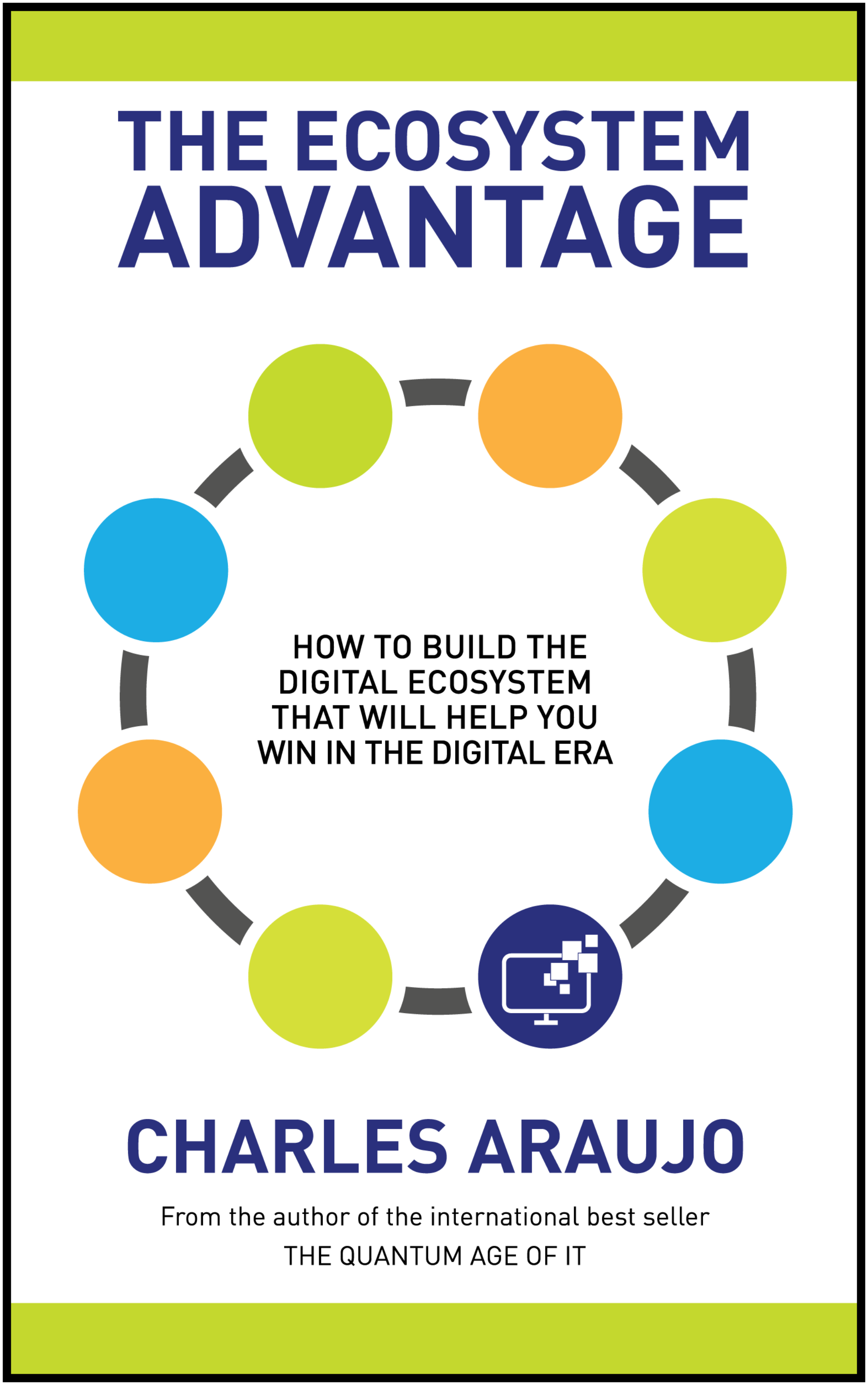The first line of my 2012 book, The Quantum Age of IT, was “IT as we know it is dead.”
My prediction has proven correct. I now routinely hear IT executives bemoan this fact when I ask them about the future of IT in their organizations.
In the book, I laid out the organizational characteristics and personal traits that would make up the IT organization of the future.
I believe that those traits are still true and more important than ever. But there’s also a more practical question that we must answer: how should we organize IT to gain advantage in this new era?
The answer to that question is the essence of my new micro book, The Ecosystem Advantage: How to Build the Digital Ecosystem That Will Help You Win in the Digital Era.
This book features insights from IT executives across a wide range of industries and organizations of all sizes.
In speaking with them at executive summits, roundtables, and dinners, I discovered several common threads that form the building blocks of how organizations are seeking to create advantage during this time of disruption.
I learned that while cloud is a key driver of both internal disruption as well as strategic planning, it is not the cloud itself that creates advantage.
Instead, building highly integrated, dynamic, and agile digital ecosystems that combine public cloud technologies with private cloud and traditional, on-premises IT strategies are driving advantage.
Beyond ‘Hybrid’
It would be a mistake, however, to simply think of digital ecosystems as nothing more than another name for hybrid cloud – or just a collection of cloud solutions.
Creating a digital ecosystem requires a holistic strategy that not only brings together a vast collection of technology resources, but also interconnects them in a highly dynamic and fluid environment.
Digital ecosystems are complex, interconnected networks of service providers providing services to IT, directly to IT’s customers and to other members of the ecosystem on IT’s behalf – all in an intertwined and dynamically managed environment. Their most important attribute, however, is that their principal organizing paradigm is business value.
For this reason, creating a digital ecosystem is about much more than just technology. Digital ecosystems mandate fundamental shifts in how executives structure their IT organizations, both within their operating models and across their cultures.
It is this simultaneous transformation of the technology, structure, and culture of the IT organization that is the source of competitive advantage – an advantage that is only seized, however, when business processes and their supporting workflows are orchestrated within these ecosystems in alignment with their corresponding business value.
Understanding the Past, Putting Cloud in Its Place, and The Modern Digital Ecosystem
Creating a digital ecosystem and putting it to work within your organization will be no trivial task. IT executives must deal with a perfect storm of organizational inertia resulting from years of constant change and turmoil combined with fundamental shifts in how IT’s customers view IT.
IT leaders must overcome this inertia, make the case for transformation and shift their team’s understanding of what cloud really means to the organization.
For good or bad, vendors, consultants, and marketing hype have largely defined the notion of cloud. You need to break through the hype and ensure that your team sees the advantages of cloud from the proper perspective.
Cloud is critical not because it’s cool, or because it can drive costs down (both of which may be true), but because it offers IT organizations the thing they need more than anything else: agility.
Finally, you must then lead your organization through the process of creating a unique digital ecosystem for your organization.
Begin by deconstructing the sources of competitive value for your company, which will lead you to understand the workflows that support the delivery of competitive value. This understanding will in turn drive the architecture of your digital ecosystem.
The result will be a Digital Ecosystem Fingerprint that will be unique to your organization —a fingerprint that will explicitly deliver, support, and protect your organization’s source of competitive value and differentiation.
My Take
The rules of business have changed. IT organizations and their leaders face a simple, binary choice. Adapt to the modern digital era and transform your organization into a digital enterprise, or become irrelevant.
You must adopt the principles of agile digital transformation, reshape your organization, and build a holistic digital ecosystem that can power you into the future. Anything less will leave you and your organization trailing your competition and struggling to keep up.
You have a tremendous opportunity in front of you to lead your organization into this future and to seize The Ecosystem Advantage, but only if you choose to take it.
This article was originally published in the Intellyx BrainBlog.
About the Author:
Tag/s:Digital EnterpriseeBook





